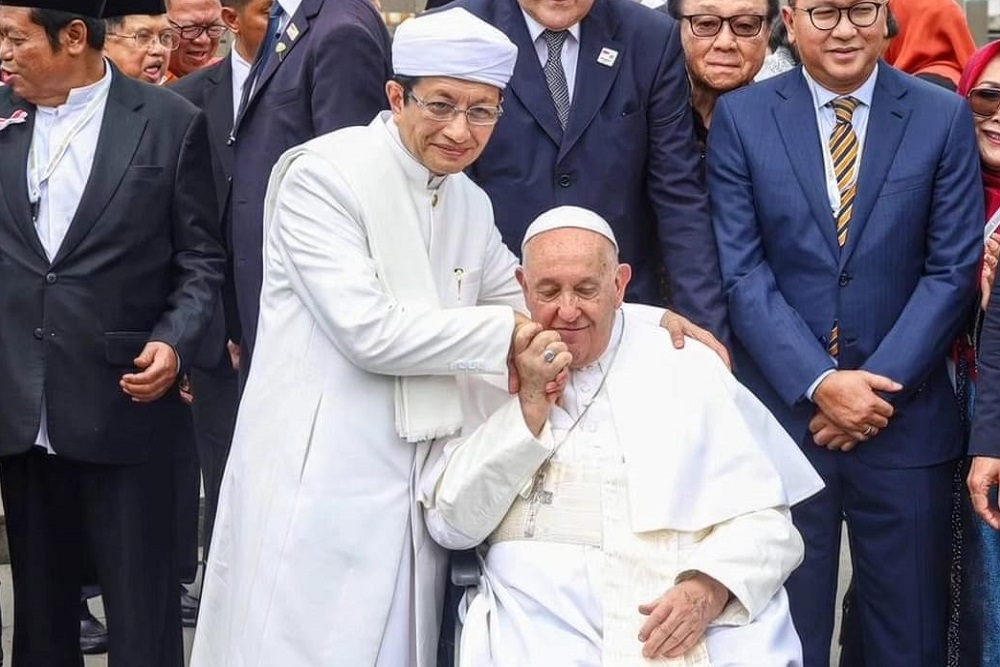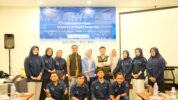New Minister of Religious Affairs: Nasaruddin Umar’s Path to Leadership
JAKARTA, RAKYAT NEWS – President Prabowo Subianto officially inaugurated 53 ministers and agency heads for the Red and White Cabinet. The ceremony took place at the State Palace in Jakarta.
Notably present was Prof. Dr. K. H. Nasaruddin Umar, M.A., the Grand Imam of Istiqlal Mosque, who has been appointed as the Minister of Religious Affairs, succeeding Yaqut Cholil Qoumas. He will be assisted by Sultan Bachtiar Najamuddin as the Deputy Minister.
Nasaruddin Umar was born on June 23, 1959, in Ujung, Dua Boccoe, Bone, South Sulawesi.
He earned his undergraduate degree from the State Institute of Islamic Studies (IAIN), now UIN Alauddin, in 1980, and completed his bachelor’s degree in 1984. His academic journey reflects a strong foundation in Islamic studies, which has shaped his professional path.
He further pursued a master’s program at UIN Syarif Hidayatullah, graduating without a thesis, and later achieved his doctorate, earning accolades as a top graduate. This rigorous education has equipped him with a deep understanding of religious and social issues, essential for his role in government.
Nasaruddin’s expertise extends beyond formal education; he has authored numerous books and conducted research focusing on gender bias in Quranic interpretation. His academic contributions highlight his commitment to addressing contemporary issues within the framework of Islamic teachings.
His international experience is also noteworthy, as he has participated in various visiting student programs at prestigious universities, including the University of London, Georgetown University, and Sorbonne Nouvelle University. This global exposure has enriched his perspective on interfaith dialogue and religious affairs.
In 2016, Nasaruddin Umar was appointed as the Grand Imam of Istiqlal Mosque, succeeding K. H. Ali Mustafa Yaqub. He played a significant role in the construction of the “Silaturahmi Tunnel,” a pathway connecting Istiqlal Mosque to the Jakarta Cathedral, which was visited by President Joko Widodo in 2020. This initiative underscores his dedication to fostering interfaith relations.
Known for his respectful demeanor, he warmly welcomed Pope Francis during his visit to Indonesia in September 2024. This gesture reflects his commitment to interfaith dialogue and tolerance, essential qualities for a leader in religious affairs.
Nasaruddin’s previous government experience is also significant; he served as the Deputy Minister of Religious Affairs from 2011 to 2014 under President Susilo Bambang Yudhoyono. His leadership in this role, alongside Minister Lukman Hakim Saifuddin, provided him with valuable insights into the workings of the Ministry.
Nasaruddin Umar’s extensive background in education, leadership, and religious affairs has positioned him as a key figure in the Prabowo-Gibran Cabinet. As Minister of Religious Affairs, he is expected to continue his advocacy for tolerance and interfaith cooperation, crucial for Indonesia’s diverse society. (Uki Ruknuddin)



























Tinggalkan Balasan